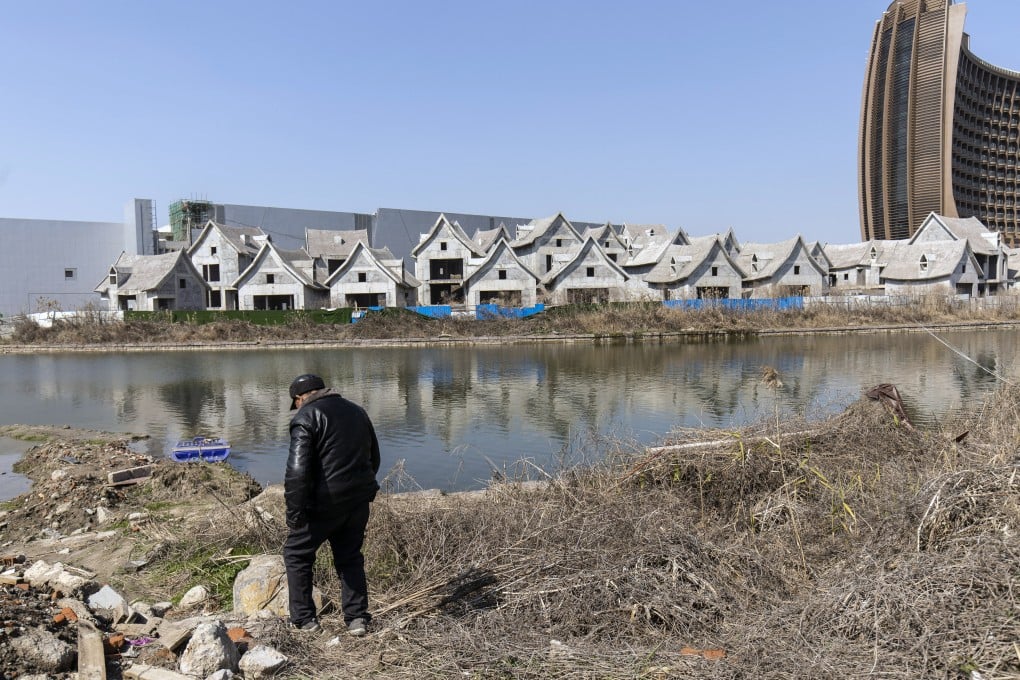China instructs banks to open the credit taps for developers to finish building their homes, and avert mortgage borrowers’ revolt
- Three quarters of China’s most indebted developers have missed completion and handover deadlines, which has led to a revolt from homebuyers
- A movement encouraging homebuyers to withhold mortgage payments is now putting pressure on the financial system and could dry up credit

The move comes as the havoc wreaked by China’s most indebted developers is spreading from creditors, offshore bondholders and high-yield debt investors into the real economy. Known in Chinese as lanweilou, these unfinished apartments, villas and homes lie strewn across an estimated 218 housing projects in more than 80 cities all over the country, sending thousands of buyers into revolt.
The shares of China’s publicly traded property developers soared on Monday after the CBIRC instruction, sending the Hang Seng index of mainland property companies rising by 2 per cent in Hong Kong, reversing at least five consecutive days of declines.
“The news is positive to the sector as regulators instruct banks to help solve the problem, even though banks may not want to do it from a commercial perspective,” said CGS-CIMB Securities Limited’s managing director Raymond Cheng. “We expect quite a number of these projects to resume work in the near future after banks release funds from escrow accounts or provide additional funds for construction.”